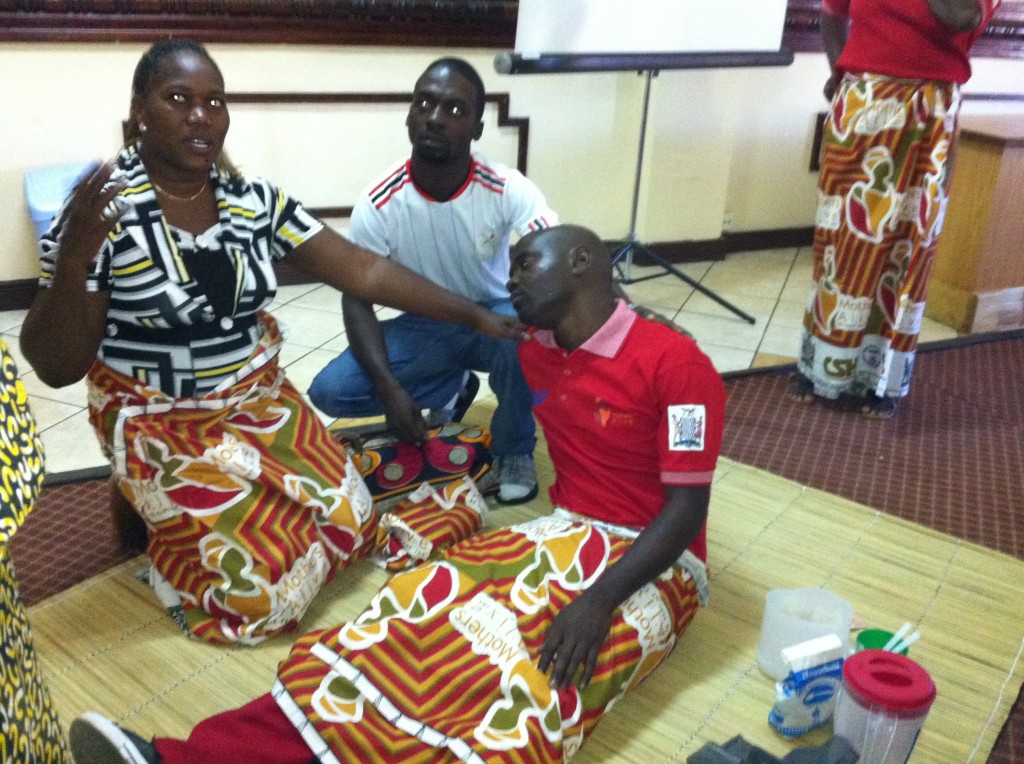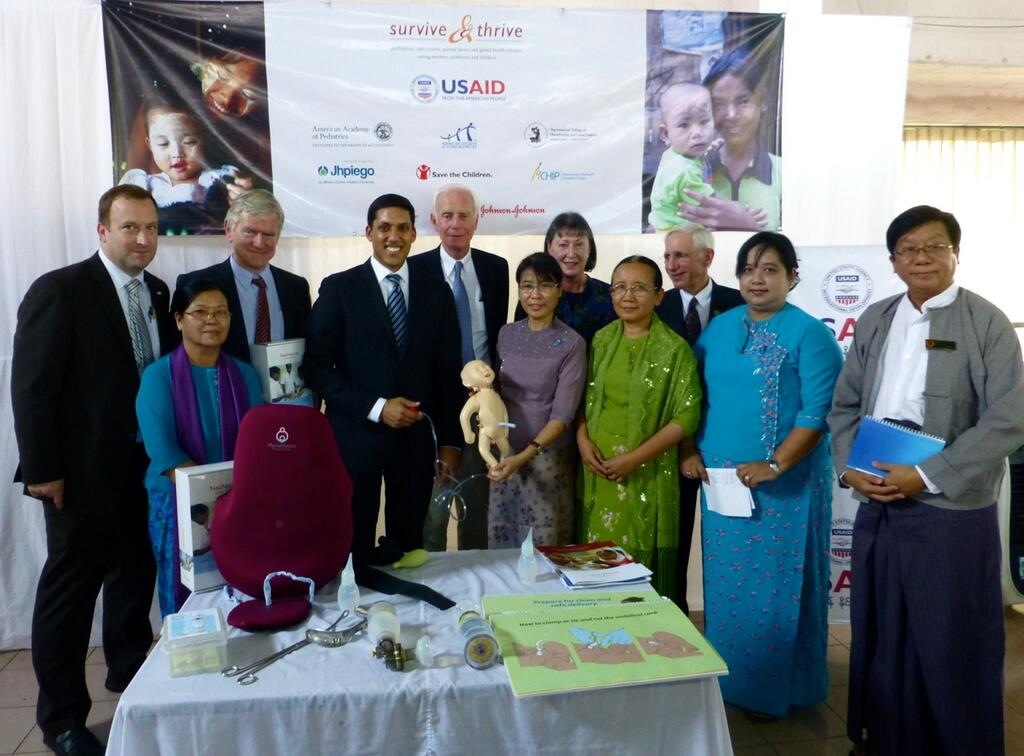Midwives on a Mission: Small Numbers Making a Big Impact

By the American College of Nurse-Midwives' Department of Global Outreach
The American College of Nurse-Midwives Department of Global Outreach is on a mission – to “lead global efforts that improve the health and wellbeing of women and infants worldwide through strengthening the profession of midwifery and building the capacity of midwives and other health professionals to serve their communities.”
Our people, as well, are truly international: Patrice White is from Texas, Anna Maria Speciale is from Italy, Kiev Martin is from Cambodia, and Veronika Schlecht is from Germany. Cheryl Jemmott is permanently stationed in Ghana, and Suzanne Stalls flew all the way around the globe this March – twice.
These disparate backgrounds crystallize into a unique departmental perspective on global health as a systemic and human rights issue which takes people at every level to improve. Our mission is lofty, but our staff is far-reaching. Midwives Suzanne, Diana, Angie, Cheryl, Patrice and Anna Maria can regularly be found as far afield as Zambia or Burma or Ghana, while Kiev and Veronika work double time to keep it all together back in the United States.
This August, we were in Tanzania with our Survive & Thrive Global Development Alliance partners for the Maternal and Newborn Regional Forum, which convened 130 government officials and leaders of health associations from more than 16 countries in East, South, and Central Africa. Our most passionate discussions centered on respectful maternity care, and the need for health professionals to be better trained to provide respectful, culturally appropriate care for delivering mothers.
By better aligning the services given by health care providers with expectations from their patients, greater numbers of women will seek and access maternal care, leading them to lifesaving obstetric measures like cesarean delivery or blood transfusions. Working together with our partners, we left the Forum with specific workplans for better equipping health workers to provide these critical services.
This June, we were in Zambia visiting the three midwifery schools that are receiving a lab technology upgrade courtesy of USAID as part of the Zambia Integrated Systems Strengthening Program. While the schools in the ZISSP project are expected to be outfitted with advanced learning tools, many education programs lack even the more basic midwifery skills lab supplies like fetoscopes and blood pressure cuffs. Despite the shortages and bad shape of many existing lab supplies, our interviews with staff and students were eye-opening and inspiring. Students reported that they were living their dream by studying midwifery, and identified their teachers as their greatest allies and their greatest inspirations. Those who love midwifery and love teaching it can pass this love on to their students despite challenging conditions; we’ll be back this month to confirm that their new materials mean they don’t face this particular challenge anymore.
This March, we helped launch USAID’s Global Development Alliance Survive & Thrive in Burma (Myanmar). The overall vision of Survive & Thrive, which includes ACNM and five other leading maternal and child health organizations, is to reduce maternal, infant and child mortality and help countries meet the Millennium Development Goals. Myanmar, with its population of more than 50 million, reports a maternal mortality rate of 200/100,000, and about 144 children under age 5 die each day – almost half of those are infants.
In Myanmar, Survive & Thrive aims to increase the delivery of high-impact and high- quality interventions by midwives and physicians; we committed to providing technical assistance and support for training midwifery and other health care providers. We have since taken over as secretariat for the entire Global Development Alliance.
We are only seven people. These are only three of the projects we’re working on. What messages would we like to share beyond these snapshots? That nearly 300,000 women and more than 3 million infants die each year as a result of preventable pregnancy and childbirth complications. That we must work together to address issues of safe motherhood. That women need to continue to support each other on maternal health and family planning issues. That frontline health workers provide comfort and technical knowledge in challenging situations and critical cultural circumstances. That if 7 workers can accomplish this much, imagine what an army of frontline boots on the ground could do.


